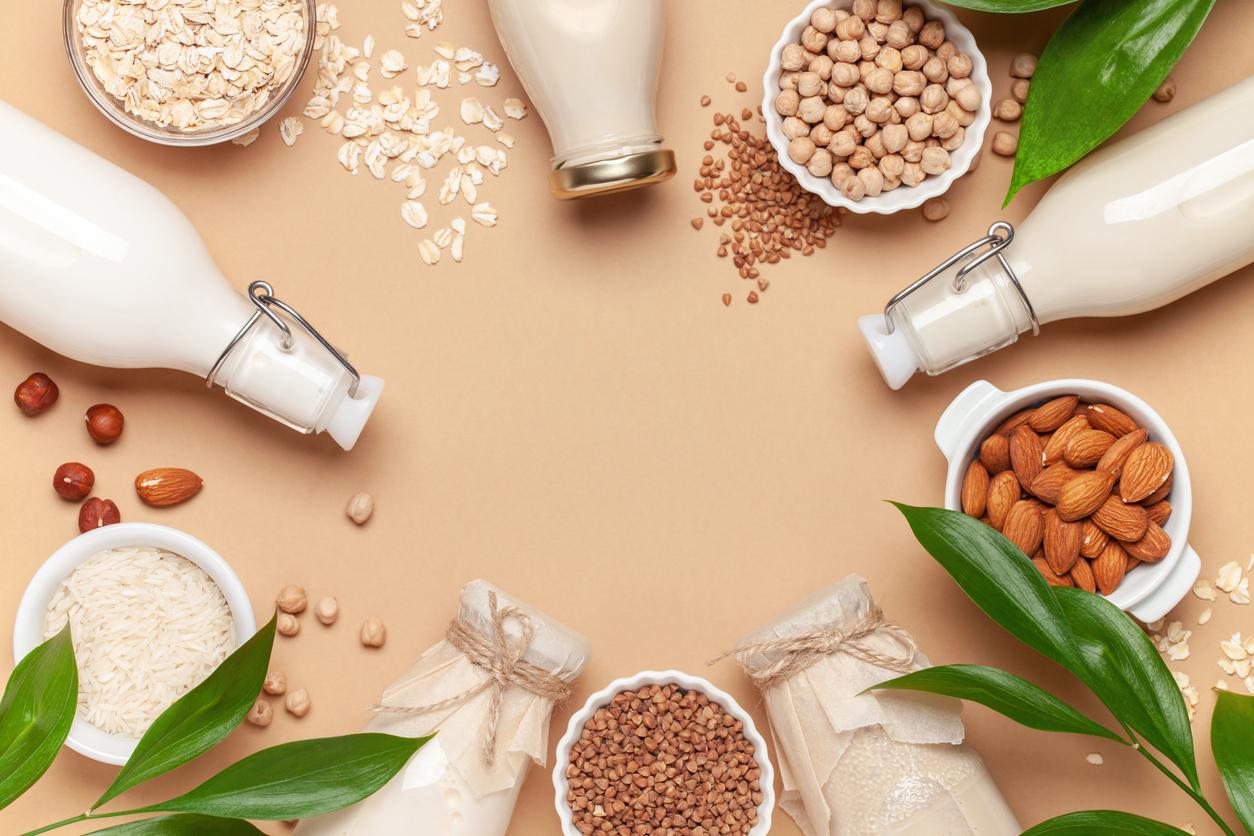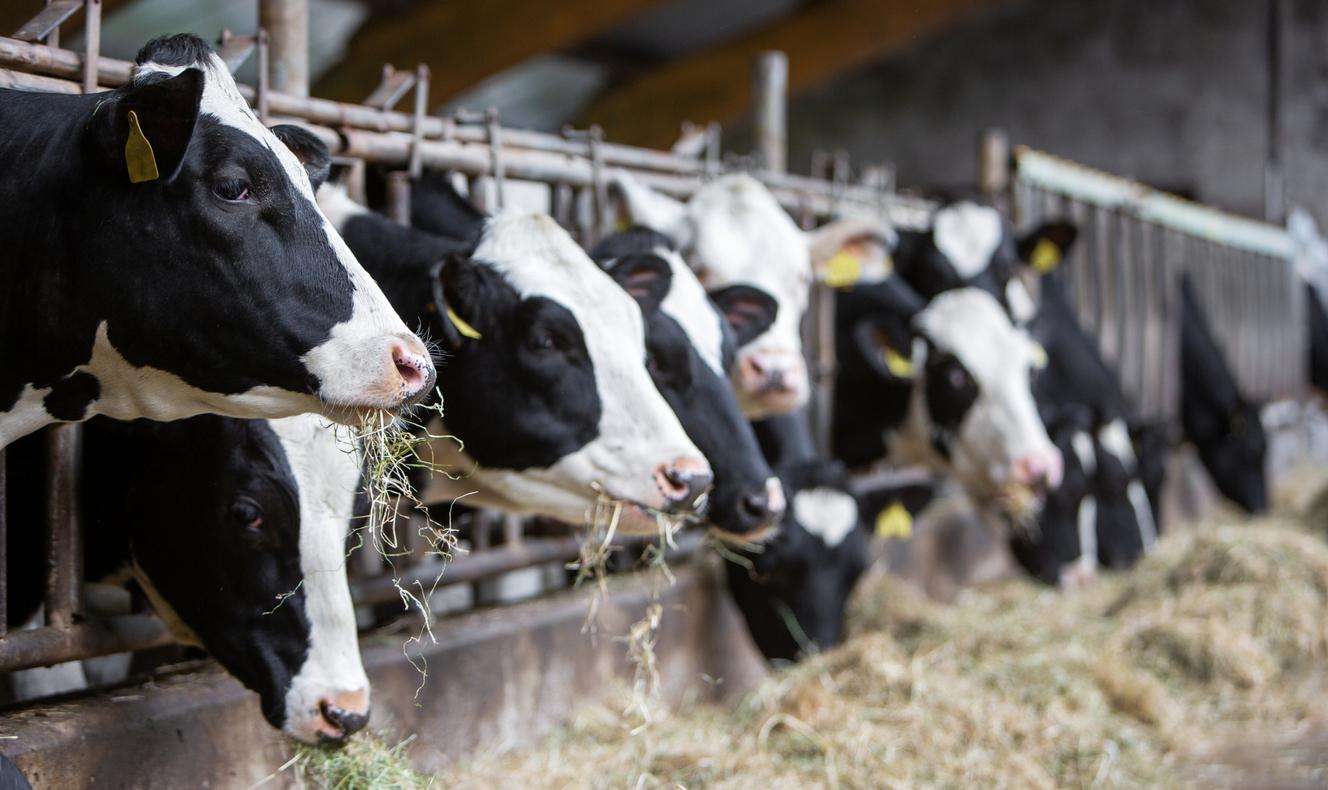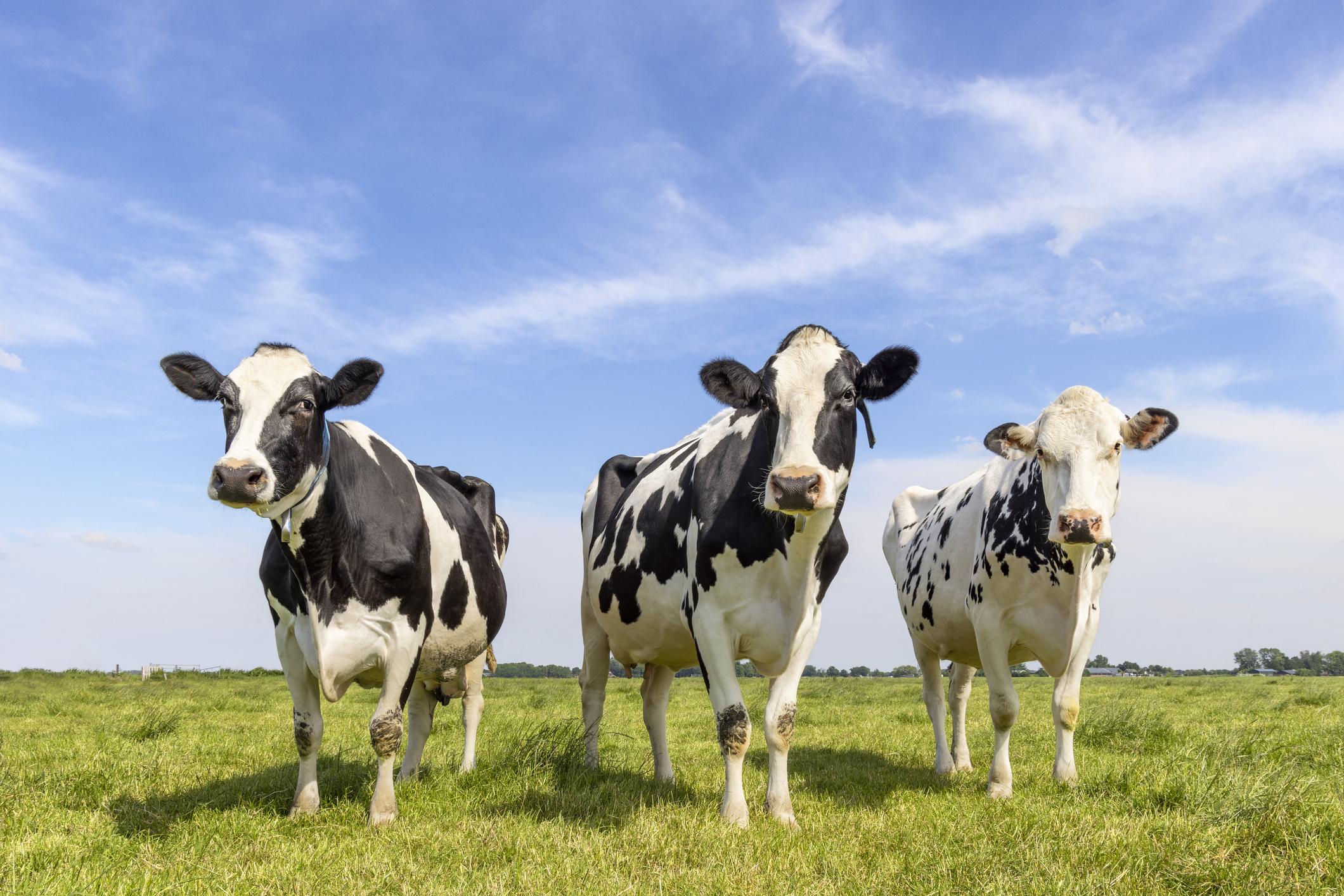From soy milk to almond milk, rice or hazelnut milk, there are now many alternatives to cow’s, sheep’s or goat’s milk. Who are they for? Are these vegetable milks better for your health? Let’s do a check in.

- There are many vegetable drinks based on soy, almonds, rice, oats or even hazelnuts.
- These “milks” can be an alternative to cow’s, goat’s or sheep’s milk.
As vegetarianism and veganism grow, they thrive on supermarket shelves: plant-based “milks” made from almonds, rice soy, hazelnuts or oats.
These plant-based drinks have little to do with the milk produced by cows, goats or sheep. Very digestible, they are rich in vitamins and are generally white in color, like animal milk, but that is where their similarities end. Without lactose or casein, they have the particularity of being able to be consumed by people suffering from intolerances or allergies, as well as by vegetarians and vegans. But vegetable milk contains much less vitamin C than cow’s milk.
What is the difference between animal milk and plant-based drinks? Which one to choose according to your needs and tastes? Here is a small comparison to help you see more clearly.
Cow’s milk
Along with all dairy products, cow’s milk is the main source of calcium in our diet. Thanks to milk, but also cheese or yoghurt, we meet two-thirds of our calcium needs, which are essential for the health of bones and teeth.
Cow’s milk also offers an important protein contribution, it is rich in phosphorus, potassium, trace elements (zinc, iodine, selenium) as well as in vitamins A, B2, B1 or B6. Above all, it is particularly rich in vitamins B2 and B12: for example, 25 cl of milk (ie one bowl) covers 40% of a child’s vitamin B2 needs. A liter of milk covers 100% of our vitamin B12 needs.
Although milk has many benefits, it can be difficult to digest due to its lactose content (a sugar naturally found in milk). You can then choose goat’s or sheep’s milk, which are more digestible.
Goat and sheep milk
Alternatives to cow’s milk, goat’s and sheep’s milk are nutritionally similar. Goat’s milk is not as high in protein as cow’s milk, but it is also an excellent source of calcium and fat. It is also lower in cholesterol and richer in vitamin A. On the other hand, unlike cow’s milk, goat’s milk contains very little vitamin B9, which contributes to cell renewal and the proper functioning of the nervous system. Don’t worry, because most goat milks on the market today are fortified with vitamin B9 to compensate for this deficiency.
Ewe’s milk is more energy-rich and richer in fat than cow’s and goat’s milk: it contains on average twice as much fat as whole cow’s milk. Rich in minerals, especially calcium (200 mg per 100 ml), it is an excellent source of vitamins D, E and B2.
soy milk
Soy milk is made from soybeans and water, it is the most popular vegetable milk. As rich in protein as cow’s milk, it is also an excellent source of fiber and polyunsaturated fatty acids, which help maintain correct cholesterol levels. It’s naturally calcium-free, but it’s easy to find calcium-fortified soymilk.
Be careful though, soy milk is not suitable for children under 6 years old, pregnant and breastfeeding women, or people on hormonal treatment, because it contains isoflavones, which are phyto-oestrogens or hormonal derivatives.
almond milk
Almond milk is low in protein but high in magnesium, iron, calcium, vitamin E and fiber. Much appreciated for its soft and slightly sweet taste, it is produced by pressing fresh almonds which are mixed with water. Our intestines digest it very easily. On the other hand, it contains very little calcium, so it does not replace cow’s milk. If you want to consume it, remember to have a diet rich in protein and to favor foods containing a lot of calcium.
rice milk
Rich in lipids (mainly unsaturated fatty acids) and carbohydrates, rice milk is appreciated for its mild and neutral taste. It is also known for its high vitamin and mineral content, it is also completely gluten free. On the other hand, it is naturally calcium-free. Thus, commercial formulas are enriched and offer the same contribution as cow’s milk: 120 mg of calcium per 100 ml of milk.
oat milk
Like cow’s milk, oat milk is rich in fiber, vitamins (especially E and B) and minerals. It also has the same fat content as semi-skimmed milk but is low in carbs, making it the perfect plant-based milk for dieters. However, it contains very little protein and is naturally calcium-free. The formulas found on the market are often enriched in order to fill this gap.
hazelnut milk
Deliciously gourmet, hazelnut milk has many benefits. Rich in vitamins (A and B), mineral salts, omega-3 and 6, it is slightly more caloric than cow’s milk. Low in protein, it is very energizing but devoid of calcium. It is therefore best to consume it in moderation and as part of a balanced diet.















-1583169654.jpg)